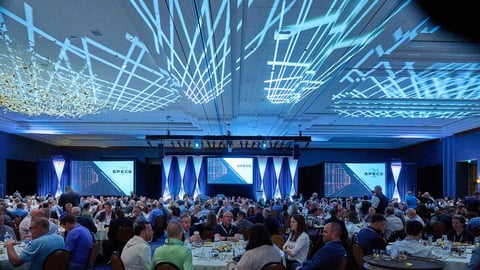Equip store managers with advanced tech for post-COVID-19 success
All brick-and-mortar retailing, like politics, is local.
As retailers start reopening their physical stores in an unprecedented and unpredictable consumer environment, they are relying on a variety of advanced enterprise solutions to help make the right decisions. While applications that streamline and analyze workflows such as merchandising, inventory and CRM at a macro level are crucial, retailers must not ignore critical technology needs at the individual store level.
Specifically, store managers must have access to tools which will enable them to anticipate, detect, and react to important localized events. These include changes in COVID-19 regulations at a level which an enterprise system may not recognize, shifts in product demand and preference of customers at a particular store, and socioeconomic needs of the surrounding community.
Here are three solutions that can greatly assist store managers in ensuring that post-COVID-19 reopenings go smoothly at a micro, as well as macro, level.
Micro-assortment/merchandising
Retailers are fine-tuning their assortment and merchandising management solutions to react to state-, county-, and even city-level differences in COVID-19 restrictions and recovery progress. But the current environment lends itself to unpredictable variances in the needs of customers at the individual store level.
For example, a sudden, highly localized spike in COVID-19 could alter a single store’s demand pattern or operating hours. The access residents of a specific neighborhood have to e-commerce and delivery services could affect how often they visit a brick-and-mortar store, and what they buy. Social upheaval in a specific area could also impact customer merchandise needs as well as a store’s ability to open.
Therefore, retailers should consider deploying merchandising, assortment and inventory management systems that provide store managers with dashboards to input data from their individual location and receive micro-targeted analysis, recommendations and forecasts.
Machine learning-based CRM
Store managers also need to ensure that CRM activity, such as promotions and discounts, is as carefully targeted to the needs of local customers as possible. Machine learning (ML)-based CRM solutions that continually collect, analyze and adapt to customer behaviors can be a crucial tool to ensure optimal store-level customer experience in an environment of constantly change.
ML technology enables CRM solutions to track customer purchases and shopping behaviors across channels, in real or near-real time. These ML-equipped tools can then either automatically adjust individualized and store-level promotions and discounts, or notify store managers to help inform their CRM-related decisions.
Virtual reality-based training and engagement
Virtual reality (VR) is gaining popularity as a mechanism for training and engaging both associates and customers. For example, Walmart has been using VR videos to provide realistic scenarios of incidents such as drug overdoses, in-store customer service events, and natural disasters. The discount giant leverages the VR technology with both employees and customers.
Store managers can use VR solutions to provide realistic training for store associates who may have to de-escalate situations such as customers who refuse to abide by COVID-19 regulations or incidents of civil unrest. In addition, VR technology can be a valuable community outreach tool. Store managers can virtually offer consumers access to job and skill training, neighborhood social services, and telehealth care.












